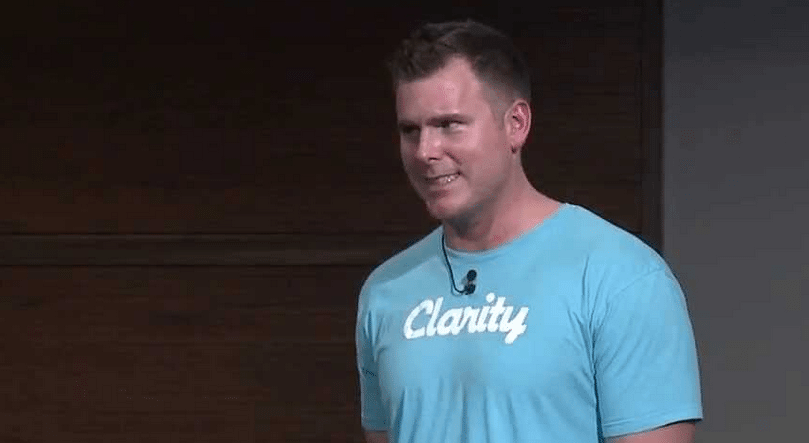
Dan Martell started off his entrepreneurial career in a small town in Canada – and no explicitly business mentors to learn from.
Good thing the story doesn’t end there: Martell went on started a million-dollar consultancy, to found Flowtown (sold to Demandforce), and is now founder and CEO of Clarity.fm, a service for on-demand business advise. In our interview, I covered a few of Dan’s snippets of advice on avoiding the common mistakes of startup marketing (most of which, he admits, he learned himself in the “school of hard knocks”).
1 – Get Enough Users to Calibrate the Experience / Messaging
Dan advises new startups to focus early and often on getting enough users onboard to test an idea. Instead of aiming to make this abstract – in the world of apps or software Dan recommends aiming for 50 signups per day.
The best way to do this initially is to start small, and to be as free as possible (though everything involves a cost at least in time).
Until you have a product that delivers a unique benefit or promise. “Sometimes the best marketing is to make sure that the product works.” Dan’s priority when working with startups he’s invested with involves honing in on how people are using the product and how they’re talking about the product… then to use that information to tweak their sign-up flows and offers.
Though Dan recognizes advertising as essential, he quotes: “Advertising is the price you pay for having a product that’s not interesting.” Ultimately, finding a product people talk about and love gets you beyond another “thing” being pushed out in the online world again.
If there’s only 5 percent of your users who love your product, figure out what differentiates them and alter your process to get more and more of your overall users to come to the same conclusion about loving the product you’re creating. “Really, it’s a psychology problem much more than a technology problem – or just a marketing problem.”
2 – Making Arbitrage Work – If You Have To
Startups come in two basic flavors, says Dan. You have the ad supported businesses (Facebook, Instagram, etc…), and you have transactional businesses (Amazon, eCommerce, etc…). If you are in the transactional business world, you’ve got to be able to make paid advertising work.
“A lot of startups like to ignore this issue, they like to pretend like it doesn’t exist,” he tells me. Paid traffic, however, is one of the very fastest way to learn what audience and what positioning are a match – and a skilled PPC person should be able to use his split-tests and experiments to test core notions about the product and it’s fit – not just different headlines.
3 – Assume You’re Wrong and Thrive
This quote stood out to me most:
“What sets me apart in entrepreneurship, I think, is that I assume that my great idea is WRONG… then I work to figure out if it’s true.”
With an aim for products that make a difference and a core vision at heart – Dan still goes out expecting to lose – with his “antennae” up to making adjustments, fast. The “Lean Startup” principles have certainly made their way into modern startup business – and Dan believes that it’s a shame that more startups can’t say these words:
“I have an idea, but I’m not sure.”
For him, that uncertainty is the start of entrepreneurship – not a barrier to success.
Image credit: MaRS Discovery District, Youtube







